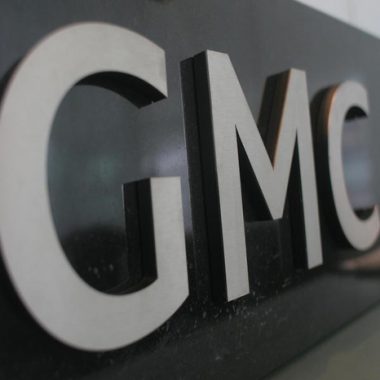GPs and other medical professionals must provide a ‘clear and honest explanation’ to patients when something goes wrong with their treatment, under new joint guidelines devised by the GMC and NMC.
The draft guidance proposed in the regulators’ consultation, Openness and honesty when things go wrong: the professional duty of candour, outlines that doctors, nurses and midwives will have a ‘professional duty of candour’ to be open and honest with patients or those close to them, if something goes wrong with their patient care.
It also states that if someone in their care has ‘suffered harm or distress’ because something has gone wrong, then the healthcare professional should apologise as soon as it becomes apparent.
This follows a joint declaration made by healthcare regulators on the issue last month.
The draft guidance calls on clinical leaders and employers to support doctors, nurses and midwives by creating ‘cultures in the workplace that are open, honest, and where people learn from mistakes so that future patients are protected from harm’.
The aim of the consultation is to provide more detailed guidance on the ‘professional duty of candour’ in addition to the exisiting professional standards set out in Good medical practice for doctors and in The Code: Standards of conduct, performance and ethics for nurses and midwives.
Niall Dickson, chief executive of the GMC, said: ‘Patients deserve a clear and honest explanation if something has gone wrong with their care. This is why, for the first time, we are collaborating on this new joint guidance. It will ensure that doctors, nurses and midwives are working to a common standard and will know exactly what their responsibilities are.
‘But it will only be of any use if it makes sense in day-to-day practice and that is why we are now going to consult with patients and with doctors, nurses and midwives who deal with these issues on the clinical front line. We want to know if it is clear enough, covers everything it should and we would welcome ideas on how best to illustrate the guidance working in practice.’
Dr Catherine Wills, deputy head of advisory services at the MDU, said: ‘In our experience, GPs understand the importance of apologising when something has gone wrong. We don’t think this will change in any way as a result of the GMC’s draft guidance although it does provide a useful reminder to doctors of the steps to take when an incident has happened.
‘Doctors tell us time and again that apologising early to a patient or their family can help prevent a complaint altogether or resolve one more quickly – so it’s to everybody’s advantage to be open and honest from the outset.’

















